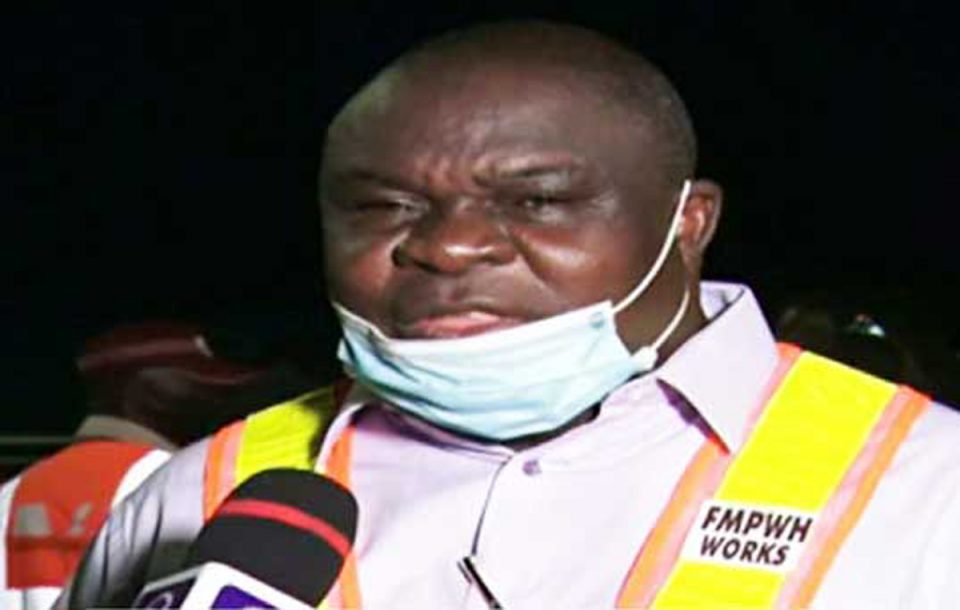The Federal Controller of Works in Lagos, Mr Olukayode Popoola on Tuesday said the Federal Government has set new standards, and will soon begin to enforce it against articulated vehicles carrying excess axle loads on highways.
Popoola at a stakeholders sensitisation in Lagos on weight limit guidelines for heavy goods vehicles on Federal Highways, distributed leaflets specifying maximum axle load limits and fines for defaulters.
The bundles of the flyers with weight calibrations and fines ranging between one and N10 millon were given to the transport stakeholders in attendance.
The controller lamented damages to federal roads due to the reckless abuse of the highways by truck operators who carry excess load to cause constant quick road degeneration.
“Today, the Nigerian roads are subject to some of the worst form of abuses, especially by stakeholders who are supposed to spearhead the preservation, protection and elongation of their lifespan.
“For instance, the weight of cargoes driven on the road by operators of haulage services per trip is far above the acceptable limits.
” The acceptable weight limit is 33 tons per loaded truck, but you will find the average truck loaded with cargoes ranging between 60 – 85 tons in transit, exerting excessive pressure on the roads and overstretching it beyond acceptable limits.
“Soon you find the road becoming depressed leading to cracks that will be further aggravated by other environmental hazards like the rain, wind and sun.
“The activity of overloaded trucks has been identified as one of the leading causes of road damage and failure, which must be addressed frontally, ” he said.
Popoola said that the federal government has about 36,000 kilometres of roads nationwide and most of the roads were receiving interventions from various loans, hence the need to protect them from abuse.
He said with the huge investment on road infrastructure the enforcement of the load carrying capacity on roads will soon begin in line with federal government directive hence, the meeting with stakeholders.
He added that government was also worried about the accidents and loss of lives and property due to overloading.
“Every vehicle has axle load and if you carry more than what you are supposed to carry, the Federal Government has now come up with appropriate fines that will be imposed on you and that one will take effect very soon.
” It is not the matter of only of having the weigh bridges on the road alone, even you the truck owner know the tonnage or axle load of your vehicle so you should not go beyond that, if you go beyond the axle load, the Federal Roads Safety Corps will apply the sanctions,” he said.
Popoola added that the meeting was convened to set standards and establish procedures for the control of dimensions, weight and axle load of heavy duty goods transport vehicles plying federal highways.
He explained that sanctions would be imposed for non-compliance with standards adding that, sanctions ranged from fines to outright impounding of the vehicles for constant offenders including prosecution in the court.
” Mr President has already signed it and it has been gazetted, we want to preserve all assets of the federal government and road is one of them, “he said.
Popoola said that measures were on to increase the number of weigh bridges in addition to functional existing ones.
Also, the Lagos State Commisioner for Transportation, Dr Frederic Oladeinde thanked the federal government for the initiative which he noted would benefit Lagos state; bearing the brunt of trucks overloading.
Oladeinde represented by his Director, Transport Operations, Mr Abdulhafis Toriola said that the ministry had been doing a lot to reduce carnage on roads across the state.
He explained that Lagos State had identified nine locations to check trucks after loading because of trucks who add load in transit after being passed at the ports.
He also called for strict enforcement at the point of loading and as the articulated vehicles traveled to enforce safety of lives and property.
He appealed to the federal government to always carry states along at the design stage of roads, adding that truck parks were supposed to be included at every 50 kilometres on highways.
Oladeinde listed several carnages in recent times caused by overloaded trucks in Lagos.
“The loss of lives and property is our own concern,” he said.
In the same vein, the Special Adviser to the Lagos State Governor on Works and Infrastructure, Mrs Aramide Adeyoye thanked the federal government saying that the initiative will make roads more durable.
Adeyoye represented by a director in her ministry, Mr Bakare Lukman said the state government had spent so much changing several of its roads from flexible to rigid pavements; because of the menace of trucks overloading.
“With this we may not need to spend so much rehabilitating our roads,”said Adeyoye.
While reacting, the Chairman, Association of Maritime Truck Owners (AMATO), Chief Remi Ogungbemi, however, commended the meeting, but appealed that more of such meetings should be held with transport unions at the Ports in conjunction with the Nigerian Ports Authority.
Ogungbemi said having another stakeholders meeting at the port would enable more transport operators to attend to boost compliance and make enforcement easier.
He promised to take the information from the meeting to his members.
The Lagos Sector Commander, FRSC, Mr Olusegun Ogungbemide said that the corps would continue to sensitise truck drivers on the dangers of overloading and would enforce government order on defaulters.




